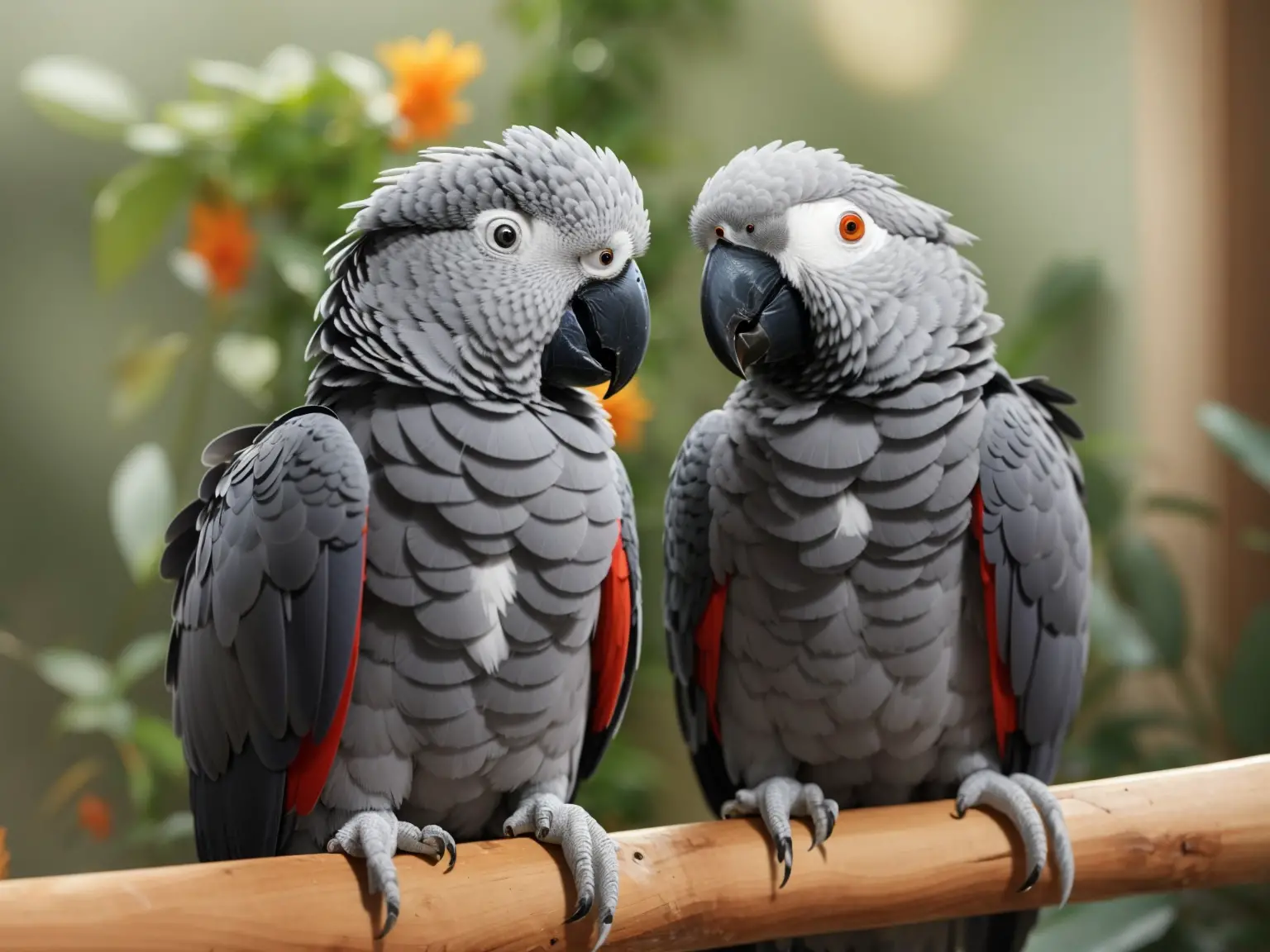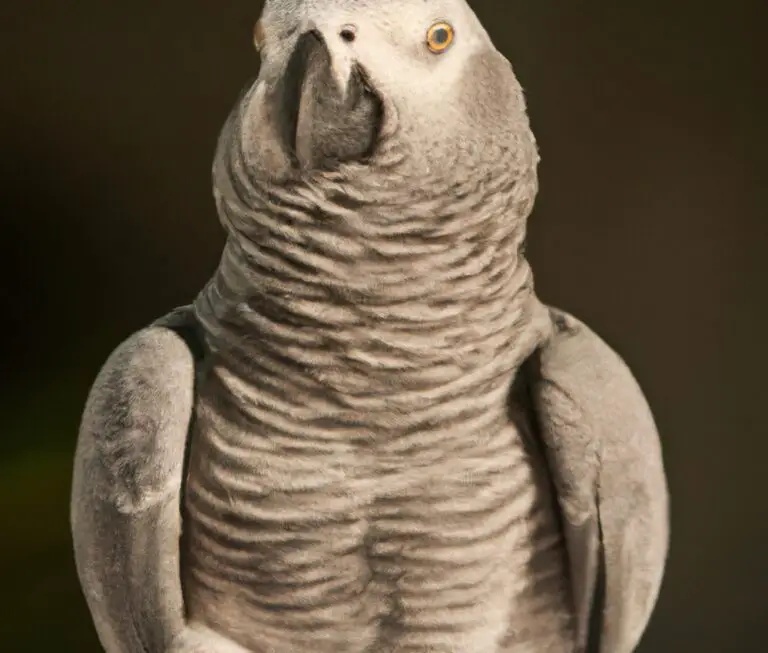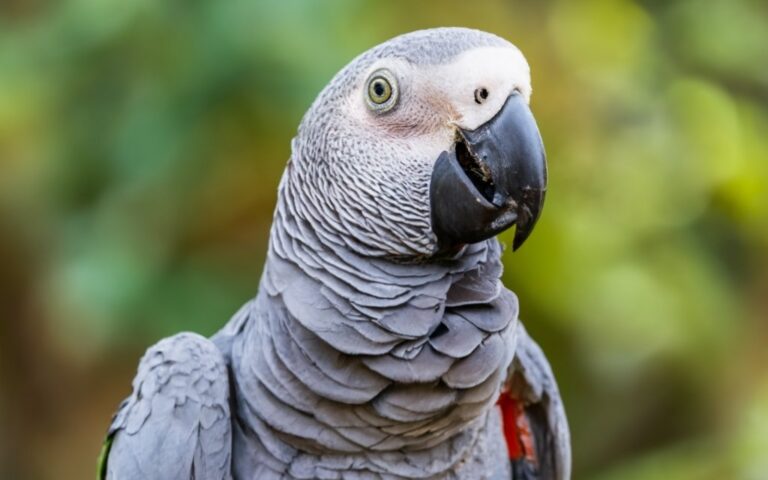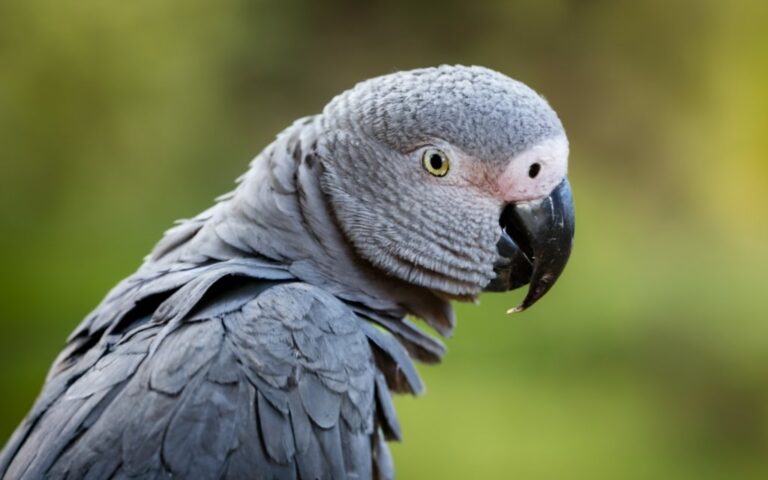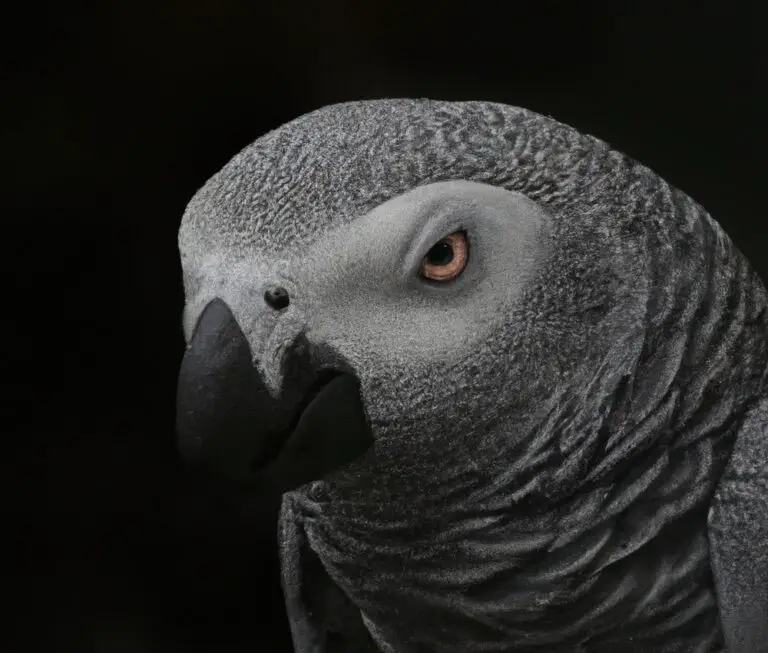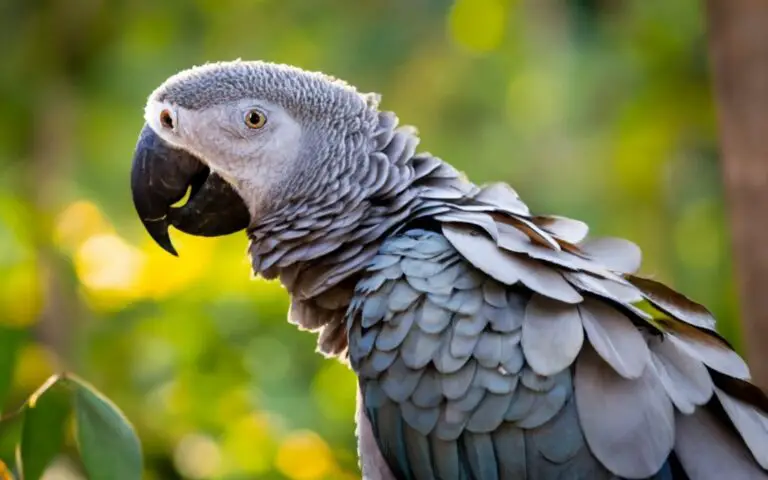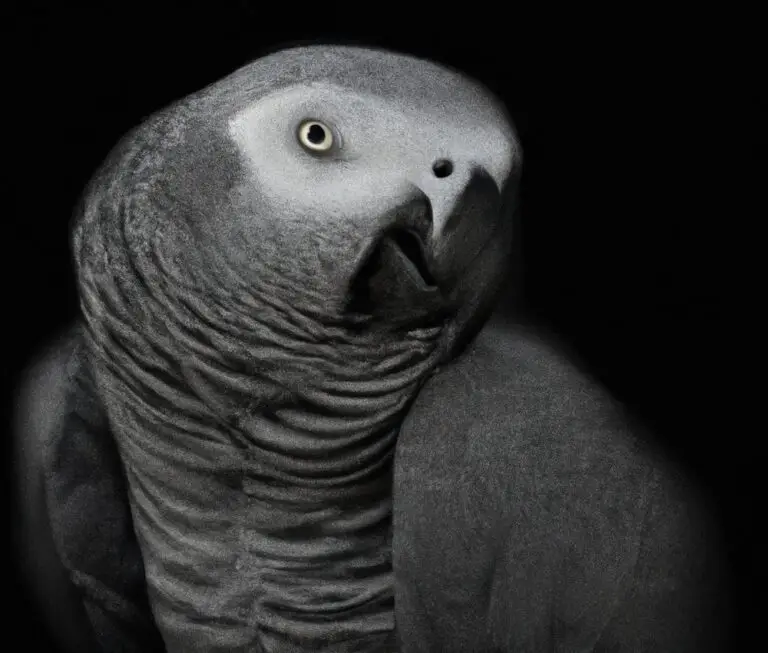How Long Can My African Grey Parrot Live With Gout?
Key Takeaways:
- African grey parrots can live for several decades if properly cared for.
- Gout is a painful condition that can significantly impact a parrot’s lifespan and quality of life.
- Early detection and treatment of gout in African grey parrots is crucial for their long-term health.
- Providing a balanced diet and regular veterinary check-ups can help prevent and manage gout in African grey parrots.
Imagine having a vibrant, colorful companion that fills your home with joy and conversation.
But what happens when your African Grey Parrot develops a painful condition like gout?
How will it affect their overall health and lifespan?
As an avid bird lover and experienced parrot owner, I understand the concerns that come with caring for these beautiful creatures.
In this article, we’ll delve into the intricate world of African Grey Parrots and gout.
We’ll explore the characteristics and behavior of these magnificent birds, common health issues they face, the causes and symptoms of gout, and most importantly, how to improve their quality of life.
Stay with me as we uncover the secrets to a happy and healthy life for your beloved African Grey Parrot.
| Topic: | How long can an African Grey Parrot live with gout? |
| Category | African Grey Parrot Health |
| Information | Gout is a serious condition that affects the joints of African Grey Parrots. While it can vary from bird to bird, the lifespan of an African Grey Parrot with gout is typically reduced. Without proper treatment, gout can significantly impact the bird’s quality of life and lead to premature death. |
| Factors that influence lifespan | |
| 1. Severity of gout: | The extent to which gout has affected the bird’s joints and organs. |
| 2. Timeliness of diagnosis and treatment: | Early diagnosis and prompt treatment can help manage gout and potentially extend the bird’s lifespan. |
| 3. Effectiveness of treatment: | The bird’s response to medical intervention and the ability to manage gout symptoms. |
| 4. Quality of life: | The overall well-being of the bird, including their diet, environment, and stress levels. |
Understanding African Grey Parrots
African Grey Parrots are intelligent and social birds with a varied range of vocalizations and behaviors.
They require mental stimulation and interaction to thrive in captivity.
Characteristics and Behavior
African Grey Parrots are highly intelligent and social birds. They are known for their exceptional ability to mimic sounds and voices.
They are also renowned for their problem-solving skills and their ability to use tools.
African Grey Parrots are typically affectionate and bond closely with their owners. They require mental stimulation and social interaction to thrive.
Additionally, they can be sensitive and may develop behavioral issues if they feel neglected or bored.
Regular training and positive reinforcement are important for shaping their behavior. African Grey Parrots are also known to be observant and may exhibit cautious or shy behavior in new environments.
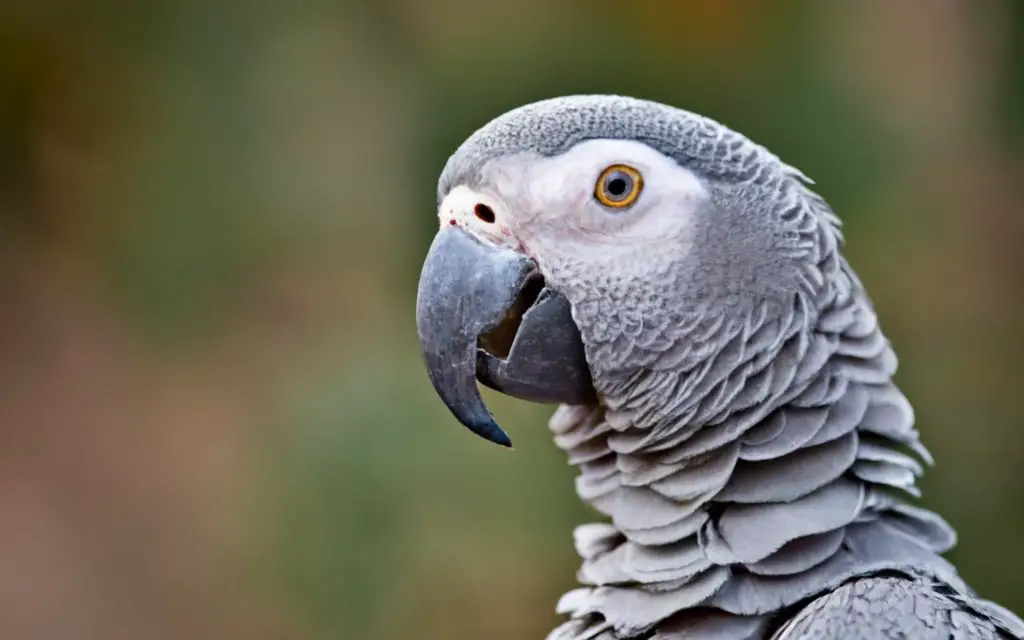
Common Health Issues
African Grey Parrots commonly face health issues, including respiratory infections, feather plucking, vitamin deficiencies, and beak and feather disease. They are also prone to gout, which affects their joints.
It’s important to address these issues promptly to ensure the well-being of your parrot.
Regular veterinary check-ups and a healthy diet can greatly help in preventing and managing these common health problems.
Gout in African Grey Parrots
Gout in African Grey Parrots is a condition that affects the joints due to the accumulation of uric acid crystals.
What is Gout?
Gout is a type of arthritis that affects both humans and animals, including African Grey Parrots. It occurs when uric acid crystals build up in the joints, causing inflammation and pain.
This condition is usually a result of metabolic imbalances or kidney problems, leading to higher levels of uric acid in the body.
Gout can be quite painful and may affect the parrot’s ability to move and perch comfortably.
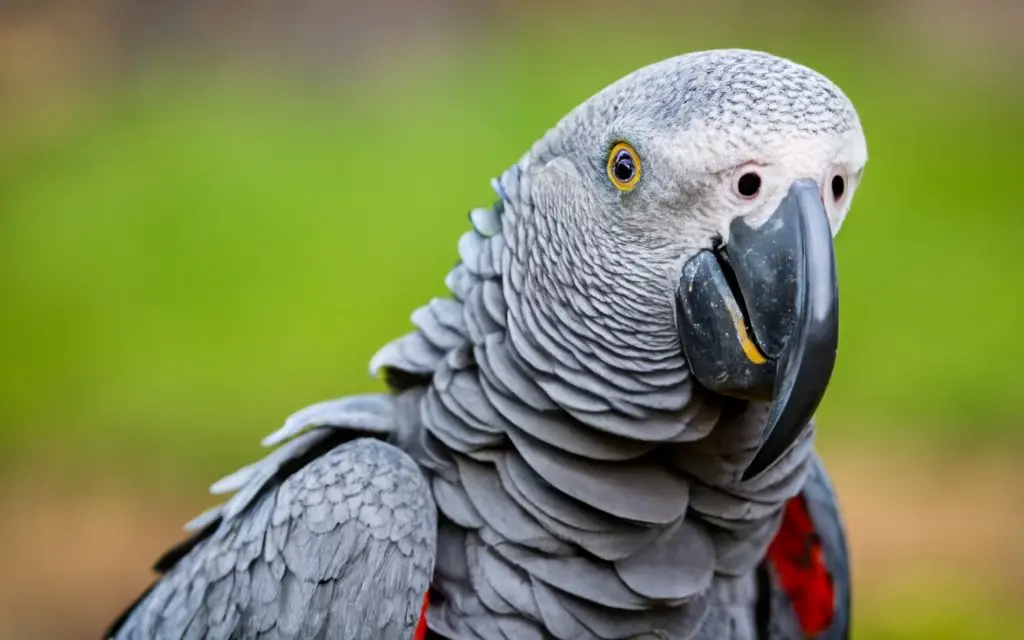
Causes of Gout in African Grey Parrots
Gout in African Grey Parrots can be caused by various factors such as a high purine diet, inadequate water intake, obesity, genetic predisposition, and kidney or liver disease.
These factors can lead to the accumulation of uric acid crystals, resulting in painful inflammation and joint damage.
It’s important to address these causes to improve your parrot’s health.
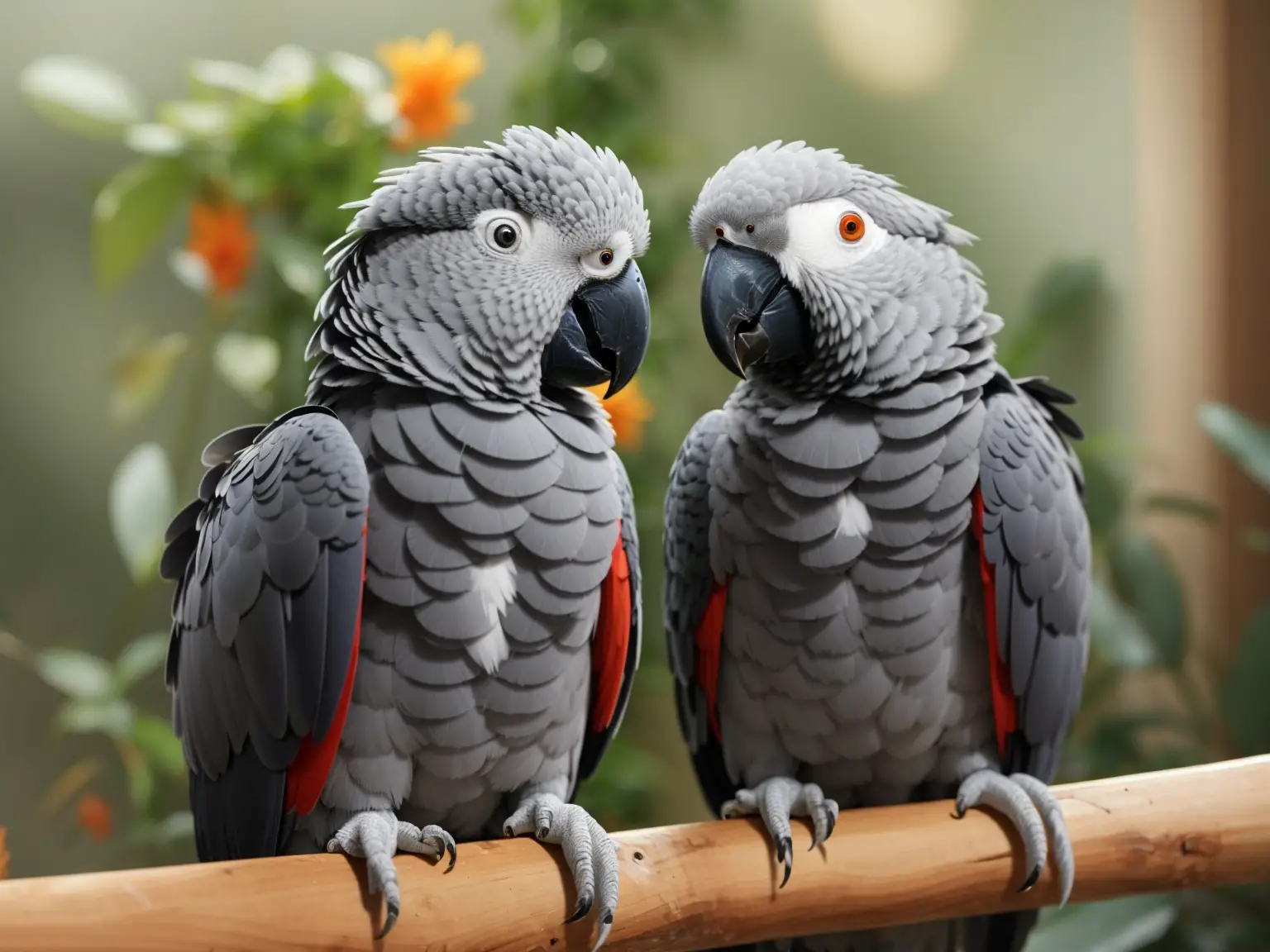
Effects of Gout on African Grey Parrots
Gout can have detrimental effects on the overall health of African Grey Parrots.
It can lead to potential complications and impact their quality of life.
Impact on Overall Health
Gout can have a significant impact on the overall health of African Grey Parrots.
It can cause joint pain, inflammation, and swelling, making it difficult for them to move and fly.
This can lead to reduced physical activity and muscle weakness.
Additionally, the uric acid crystals that cause gout can also damage other organs, such as the kidneys.
As a result, the parrot’s overall health and quality of life may be compromised.
Regular veterinary check-ups and a proper management plan are crucial in minimizing the impact of gout on their health.
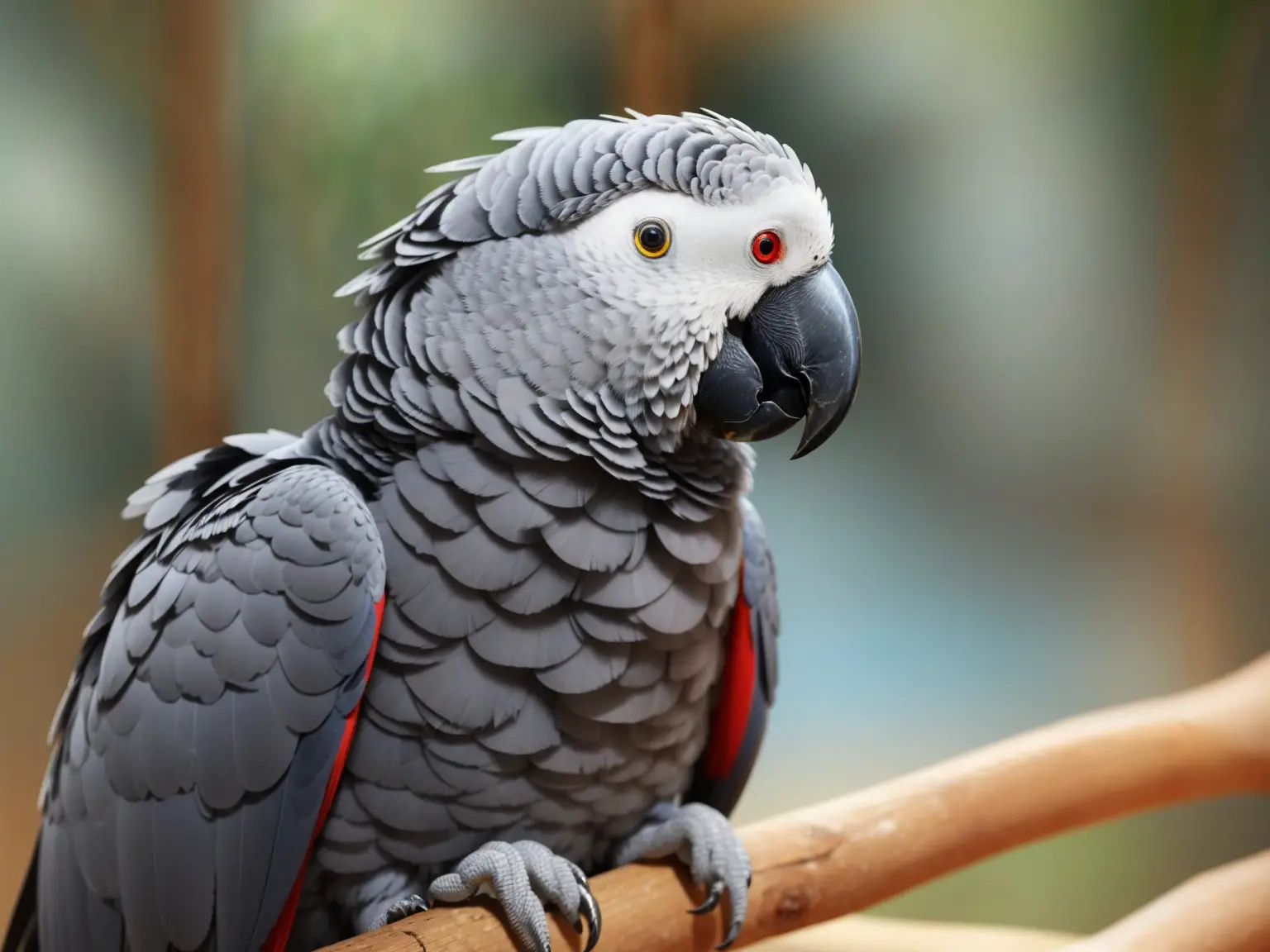
Potential Complications
Potential complications of gout in African Grey Parrots include:
- Joint Damage: Gout can cause inflammation and damage to the joints, leading to pain and difficulty in movement.
- Kidney Problems: Gout can affect the kidneys, leading to reduced kidney function and potential kidney damage.
- Organ Damage: If gout is left untreated, it can lead to the accumulation of uric acid crystals in various organs, causing organ damage.
- Decreased Quality of Life: Gout can significantly impact the parrot’s overall health and well-being, resulting in a decreased quality of life.
- Increased Susceptibility to Infections: Gout weakens the immune system, making African Grey Parrots more vulnerable to infections and other health issues.
It’s important to promptly address gout and work closely with a veterinarian to manage the condition and minimize these potential complications.
Lifespan of African Grey Parrots with Gout
African Grey Parrots with gout may have a shortened lifespan compared to healthy parrots.
Gout can significantly affect the lifespan of African Grey Parrots.
Factors Affecting Lifespan
The factors that can affect the lifespan of African Grey Parrots with gout include their overall health, the severity of the gout condition, and the quality of care they receive. A healthy diet, regular exercise, and proper veterinary care can help manage gout and potentially extend their lifespan.
However, it’s important to remember that each parrot is unique, and individual circumstances can also play a role in their lifespan.
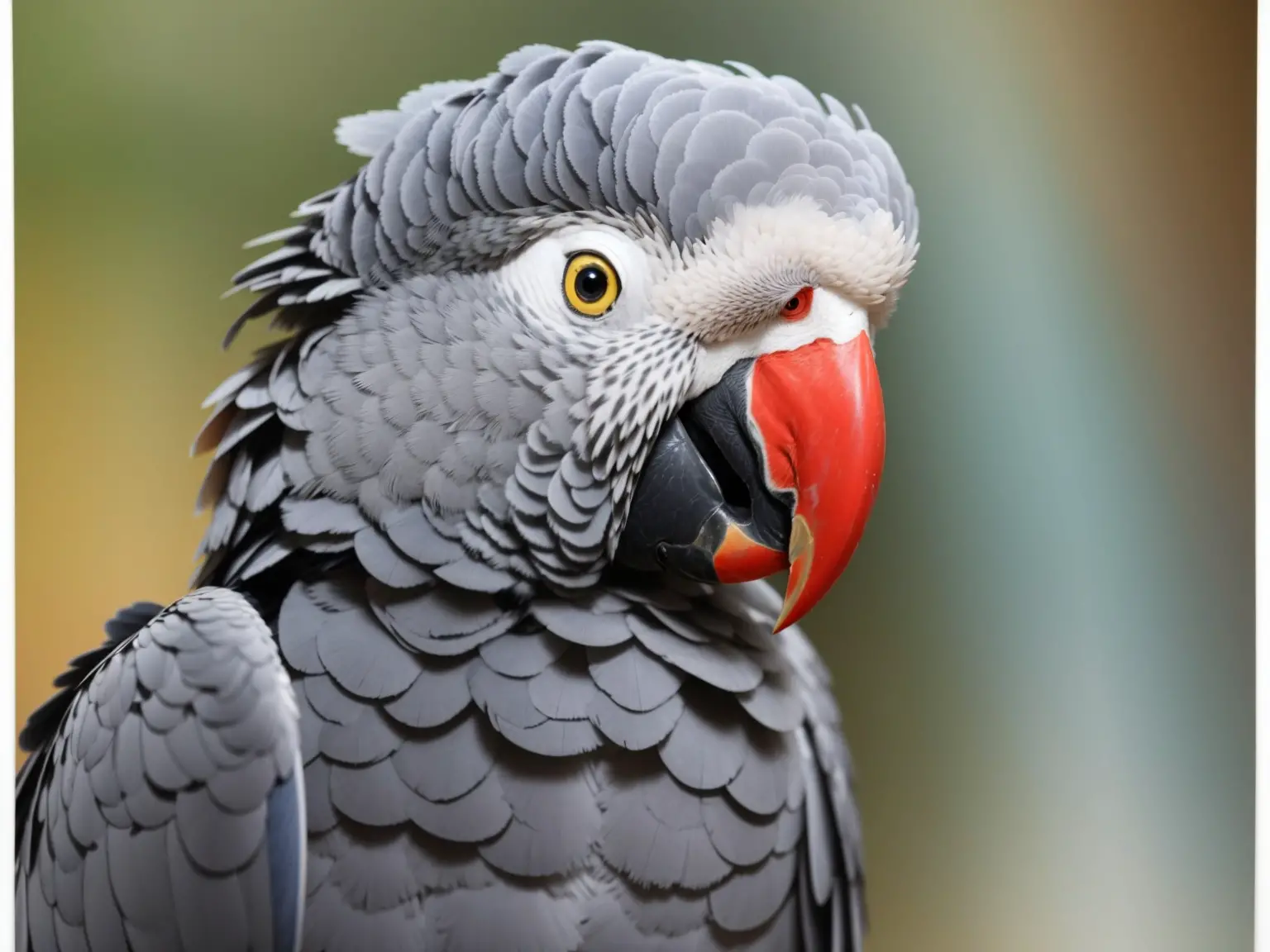
Managing Gout in African Grey Parrots
Managing gout in African Grey Parrots involves a combination of dietary changes, exercise, regular veterinary check-ups, and medications. It’s important to provide a low-purine diet, promote exercise and mental stimulation, and follow your vet’s recommendations for medication.
Regular monitoring and adjustments may be necessary for optimal management.
Improving the Quality of Life for African Grey Parrots with Gout
To improve the quality of life for African Grey Parrots with gout, focus on their diet, exercise and mental stimulation, as well as regular veterinary check-ups and medications.
Exercise and Mental Stimulation
Exercise and mental stimulation are vital for the well-being of African Grey Parrots with gout.
Regular physical activity, such as flying and climbing, helps maintain muscle strength and cardiovascular health.
Mental stimulation, through interactive toys and puzzles, keeps their minds engaged and prevents boredom.
Both exercise and mental stimulation contribute to a happier and healthier life for these parrots.
Regular Veterinary Check-ups and Medications
Regular veterinary check-ups and medications are essential for managing gout in African Grey Parrots.
These check-ups allow the vet to monitor the bird’s condition and adjust medications if needed.
Medications prescribed by the vet can help reduce inflammation, manage pain, and improve the bird’s overall quality of life.
Your vet will provide guidance on the frequency of check-ups and the appropriate medications for your parrot.
Frequently Asked Questions about African Grey Parrots and Gout
Can African Grey Parrots recover from gout?
Yes, African Grey Parrots can recover from gout, but it depends on the severity of the condition and how it is managed.
With proper veterinary care, including dietary changes, exercise, and medication if necessary, some parrots can experience improvement in their symptoms and lead a good quality of life.
How can gout be prevented in African Grey Parrots?
To prevent gout in African Grey Parrots, it is important to ensure a proper diet that is low in purines, as excessive purines can contribute to gout formation. Avoid feeding high-purine foods like meat and organ meats.
Providing a balanced diet that includes fresh fruits, vegetables, and pellets can help minimize the risk of gout.
Additionally, providing clean, fresh water at all times and regular exercise can also support overall health and help prevent gout in African Grey Parrots.
Is gout a common issue among African Grey Parrots?
Yes, gout is a common issue among African Grey Parrots. These intelligent birds are prone to developing the condition due to their unique metabolism.
It is important for owners to be aware of the signs and symptoms of gout in order to provide early intervention and treatment for their parrots.
Final Verdict
Gout is a serious condition that can significantly impact the health and lifespan of African Grey Parrots.
While there is no cure for gout, with proper management and care, affected parrots can live a relatively healthy and comfortable life.
It is crucial to make dietary changes, provide regular exercise and mental stimulation, and ensure regular veterinary check-ups and medications.
Additionally, it is important to prevent gout by providing a balanced diet and avoiding foods high in purines.
By following these steps, you can improve the quality of life for your African Grey Parrot and potentially prolong their lifespan.

